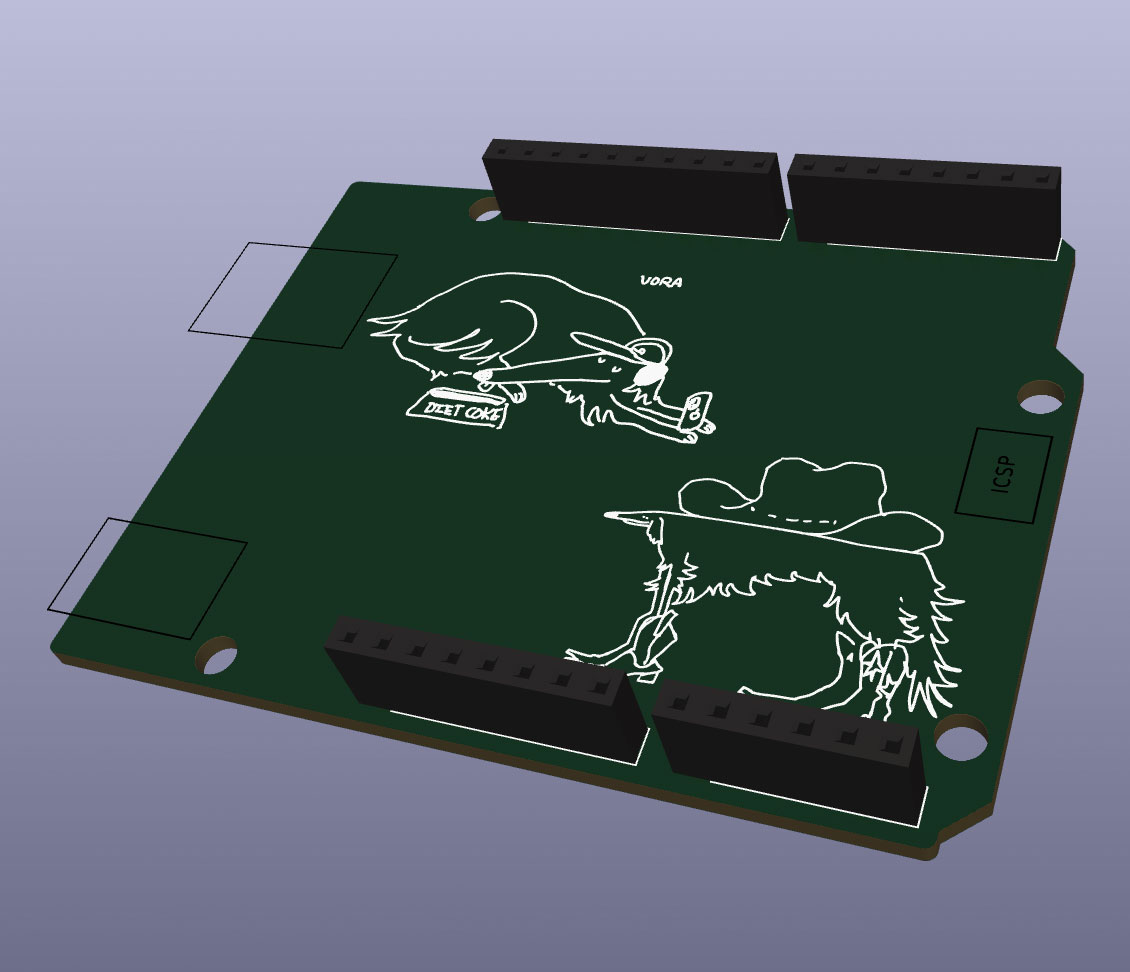PCB (Printed Comic Boards)
Vera Liqian Zhong
Advisor: Simone Salvo
Learn about electronics as if they were people, like us: with their own personalities, quirks, and roles in their system/society.

Abstract
Novices learning about electronics for the first time often face difficulties due to the abstract nature of the subject. Through anthropomorphism, the humanization of non-human entities. By attaching human qualities to electronic components. This leverages the cognitive bias to understand qualities and behaviors through metaphorical analogies to the human experience. Through a creatively designed comic book printed on the silkscreen of a Printed Circuit Board (PCB), electronic components are reimagined as characters with distinct personalities, quirks, and societal roles. This serves as both a visual guide and a functional example of the electronics at play, bridging the gap between theoretical knowledge and practical understanding.
Technical Details
KiCad, PCB Manufacturing, Illustration
Research/Context
Electronics, often perceived as an abstract and complex subject, presents a significant challenge to learners, especially those without a technical background. The application of narrative techniques in teaching electronics can transform this daunting subject into an accessible and enjoyable journey. Anthropomorphism, the attribution of human characteristics to non-human entities, serves as an effective bridge in this context. By humanizing electronic components within a story, learners can more easily grasp their functions and interactions.
In the realm of education, Social and Emotional Learning (SEL) has emerged as a key component, emphasizing the importance of emotional intelligence alongside academic skills. SEL advocates for understanding and managing emotions, setting positive goals, showing empathy for others, establishing positive relationships, and making responsible decisions. Integrating
The integration of SEL, narrative learning, and anthropomorphism in the context of electronics education facilitates a deeper emotional and cognitive engagement with the material. This approach not only simplifies the complexities of electronics but also fosters empathy and a more profound connection with the subject matter. This results in a holistic learning experience that resonates on both an intellectual and emotional level, making electronics education approachable and comprehensible for a diverse range of learners.